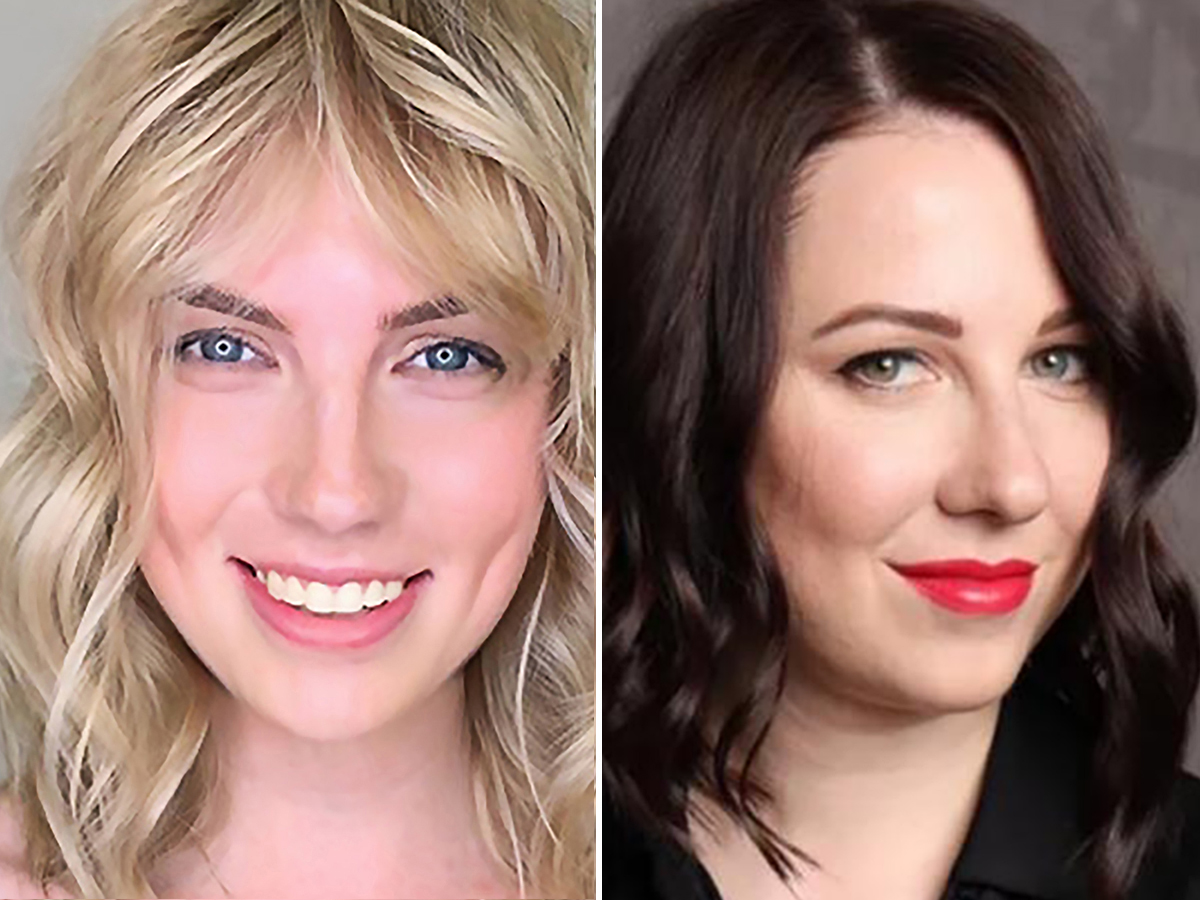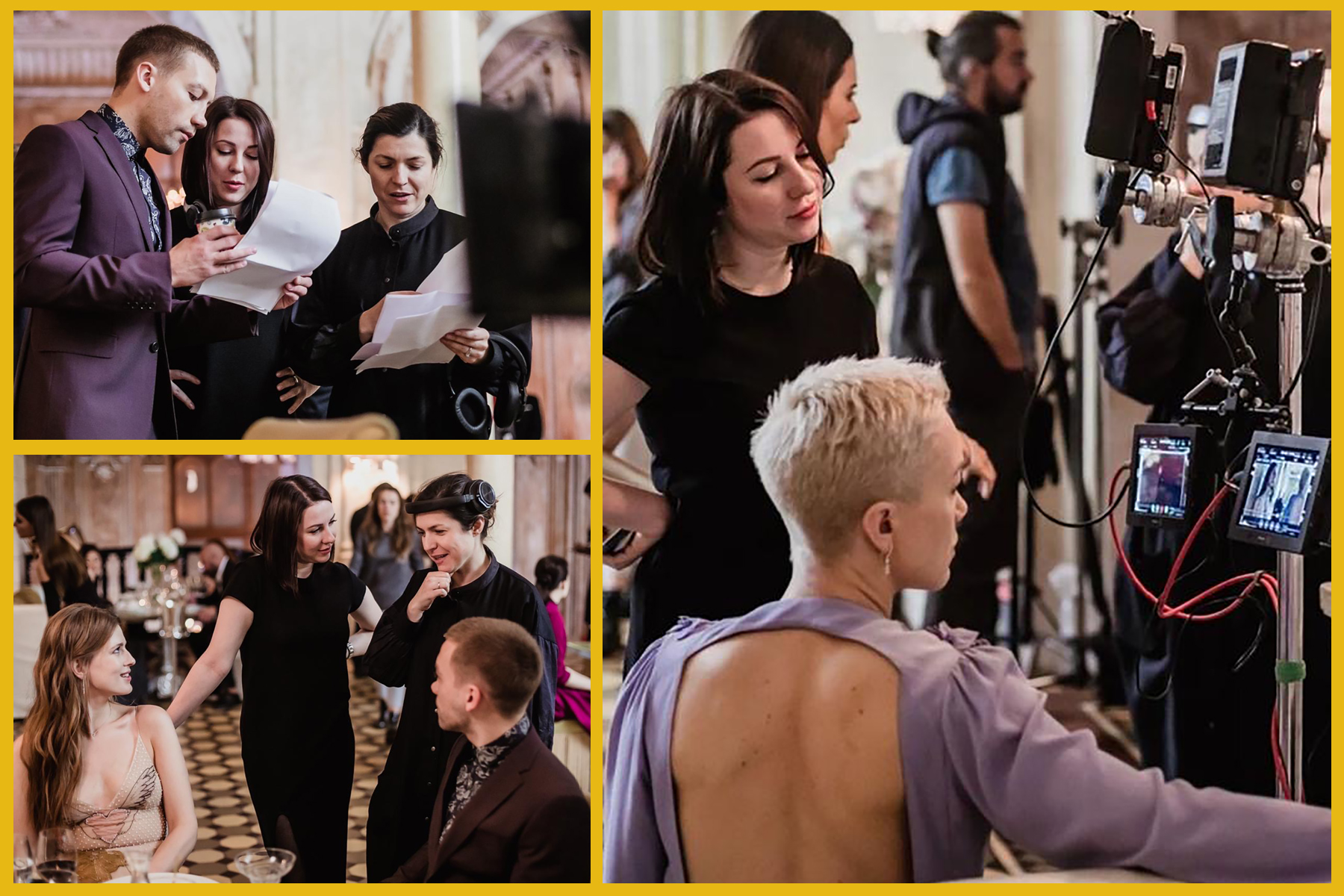
- Interviews
Rising Russian Female Producers Talk About Their Projects
Yellow, Black and White is one of Russia’s leading entertainment groups.
Renowned in the country for both film and TV, YBW is the studio behind Gold Diggers, the hit TV series that’s already been seen by 25 million Russians. The first broadcast on YBW’s Start platform, this straight-to-digital production is the first in Russia to capture a bigger audience than any linear TV show and also to make a profit. The series’ success is traveling well: otherwise known as Russian Affairs, it is the first Russian project to have been acquired both by Amazon and “Walter Presents”, the foreign language drama channel on UK’s Channel 4.YBW’s other projects are Better Than Us (available on Netflix), Storm (winner of the Silver Medal for Streaming Drama at the New York Festival Storytellers’ Gala) and Son of the Rich. YBW is also the first Russian company to secure deals with both Amazon and Netflix.
We spoke with the women who run YBW International: Daria Bondarenko and Irina Sosnovaya.
It seems rare for Russian television to make world news. How did you manage to get attention from Amazon and Channel 4 for Gold Diggers?
Irina: Initially, we did not set ourselves global goals. The objective was to create a high-quality and uncompromising Russian TV series that would honestly and emotionally showcase modern Russia. We wanted it, to some extent, to be an anthropological study of its current reality. And we wanted to make a truly high-quality Russian project that could change the industry and audience patterns. A couple of years ago, movie fans viewed Russian TV series as content for housewives and watched only Western projects. To change that we invited a well-known actor (Daria Moroz) and director (Konstantin Bogomolov) known for his progressive and bold theatrical works. We realized quite early that we were doing the project exclusively for digital, which gave us the freedom and creative courage to break the rules. The response was fantastic!

Daria: Also, Gold Diggers is very different from other dramas out there. While it’s very raunchy, with uncut stories and characters, it’s still a glossy escapist television drama made for entertainment that immerses the viewer into a different world. It’s not a heart-breaking dramatic thriller, even though the viewer sees a very dangerous world with its own harsh rules.
Gold Diggers revolves around gender equality issues…
Daria: In Gold Diggers, all the lead characters are female. It was really important to us that they were fully developed, three-dimensional, and dynamic, with their own aspirations and challenges, as opposed to just passive eye candy. For example, the lead character is a policewoman. She’s dynamic, active, and faces a moral dilemma. The script is intelligent and sensitive. It doesn’t portray women as victims or part of a sisterhood, but rather as individuals with their own ambitions, with some good and some bad choices. I think this is part of why the show attracted 25 million viewers. While there are many women who hold top positions as CEOs and managers in Russia, it is still a traditional patriarchal society with men being in charge of the money. Women are less likely to be in the spotlight.
Irina: It was exciting for us to explore how Russian women survive the patriarchy. Gold Diggers has become a cultural phenomenon in Russia and Eastern Europe. We sought to understand why educated women form relationships based on sex as a commodity. Russia has one of the biggest percentages of female executives than in any country in the world. Yet, there is a tremendous amount of domestic violence and abuse. It was interesting to explore this phenomenon and other social issues, like police corruption and the changing role of the family in society.
This was the first series in Russia to be released only digitally. How was the marketing campaign planned and implemented?
Irina: Yes, indeed, this is a unique case. The project had an audience greater than any television series, even without primetime TV ads. Our most successful project, the Kitchen series, which was sold in 20 countries, aired on TV. But Gold Diggers was only promoted on the Internet. We focused on social networks and Telegram channels and ran creative campaigns. Promoting Gold Diggers also involved a large number of popular online artists, who were captured by the project – its uniqueness and the spirit of freedom it carried. They became the series’ biggest promoters on social networks, which led to word-of-mouth marketing.
You are the new faces of the Russian film and television industry. Tell us a bit more about yourselves.
Irina: I came to Moscow from Kazakhstan, because Moscow is the city that affects the agenda of all countries of the former Soviet Union. I came with the dream of becoming a journalist because they influence what is happening in society. At 16, I began working as a journalist at the country’s main news channel. At 23, I became the chief producer of the main primetime news show. I liked being in the center of events and telling people the truth about the country and society. In parallel, I began producing documentaries. At some point, it became apparent that honest journalism in the country was over and state channels were pursuing their own agenda. So, I decided to do TV shows.
Few of my socially and civically active friends watch the news on TV, but everyone watches high-quality TV shows. TV becomes the main pop-culture delivery system for values and morality. Last year I also produced the Storm series. It came out only on the VOD platform because it had too much social context for primary TV channels in Russia – and it was enthusiastically received by the audience and the critics. It became the first Russian laureate of the New York Film Festival. In the end, it was still shown on TV and the topics it touched reached a very wide audience. So, my work makes sense again.
Daria: I’ve always wanted to work in television and, once I graduated, managed to secure a job at a Russian production company as a PA to the founder and producer. Shortly after, I got promoted to International Business Development Manager. From my starter job, I moved a couple of times, always working with fantastic people. I joined Yellow, Black and White in 2017 as EVP of International Sales and Co-Productions. It is one of Russia’s most connected and renowned entertainment studios and, in my mind, produces the most exciting and innovative content here.
What’s next? What are the plans for the studio?
Daria: We’re really excited about Season 2 of Gold Diggers, while Season 3 is in development and will feature many talented women on- and off-screen. We are also working on a wide range of other shows. Our Sherlock is a distinct Russian take on the most famous detective in the world – a costume period drama and action/crime show set against a sumptuous St. Petersburg backdrop.
We also have a few shows in development where we will be looking for international co-production partners. I think for us it’s important to focus on both production and storytelling equally, which is a challenge but also an opportunity. We want to deliver great entertaining content with a little bit of Russian “seasoning”.
Irina:
My new project A Good Man is based on real events and is about the most dangerous serial killer in Russia, who killed 78 women. I actually spent several hours in prison talking to him. At first glance, this is a famously twisted story about a maniac who was actually a policeman by day and therefore knew how to avoid capture. But globally, this is a story about the dehumanization of society. It is an exaggerated story of what is happening in many Russian cities, where domestic violence is a social norm, it is indecent to be an unmarried woman, and a woman is often perceived as an attachment to a man.

